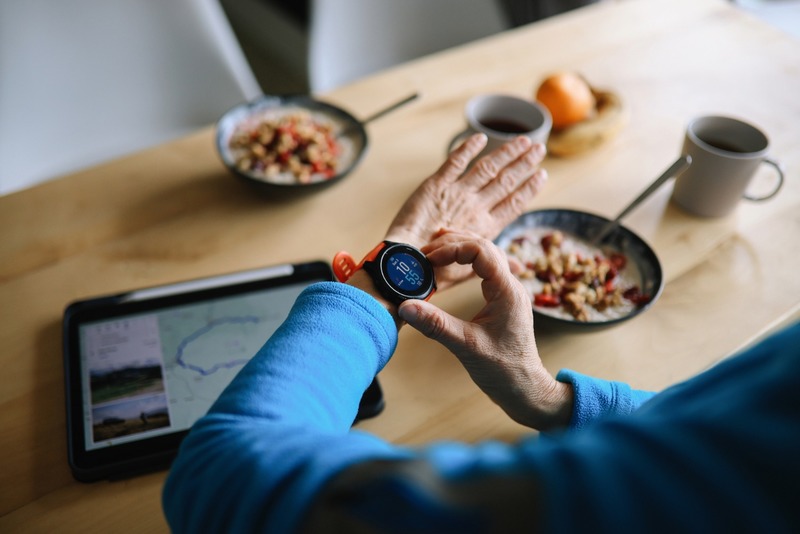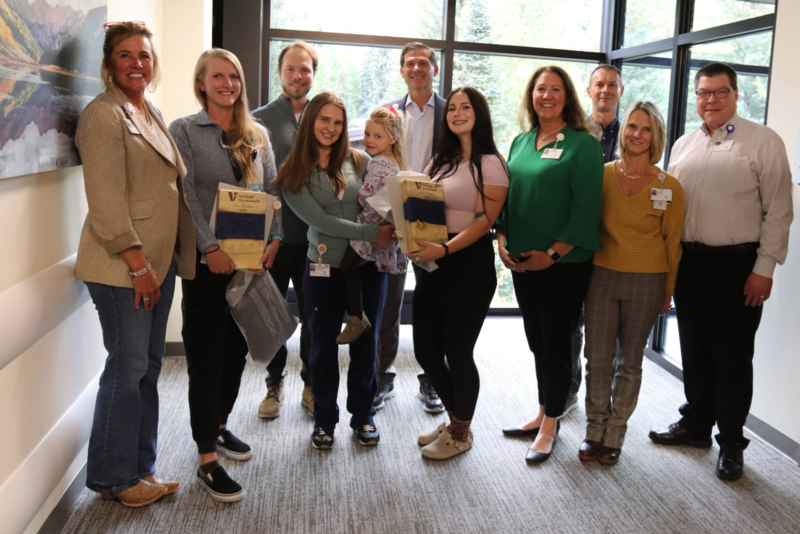News
A New Field of Psychotherapy is Recognizing—And Treating—Climate Anxiety

Do you find yourself casually remarking on the declining snowfall each year, wishing for more powder days like we used to have? Or, is your worry exacerbated by thoughts of a drier summer, more potential wildfires nearby and melting glaciers far away?
Global warming was a phrase coined only a few decades ago, and since then, the idea of it has settled into people’s minds. As the issues around climate change have escalated, the fears of its impact are causing a mental health crisis in people around the world.
Climate anxiety and eco-anxiety are terms only recently labeled in 2005, and since then, they have become part of the vernacular in discussions amongst psychologists and psychiatrists globally, as well as in everyday therapy sessions and support groups. The American Psychology Association (APA) describes eco-anxiety as “the chronic fear of environmental cataclysm that comes from observing the seemingly irrevocable impact of climate change and the associated concern for one's future and that of next generations.” An even newer term, solastalgia, is a form of depression or distress caused by environmental change. Coined by Australian environmental researcher and philosopher Glenn A. Albrecht, solastalgia is based on the words “solace” and “algos” (Greek for pain), and implies that if a person seeks solace in an environment that is in danger, they feel distress.
Organizations like The Climate Psychology Alliance of North America (CPA-NA) and the Good Grief Network have been established to address mental health challenges associated with climate change and promote psychological resilience. CPA-NA’s website includes an online directory of climate-aware therapists, and the Good Grief Network’s 10-Step Program helps participants build “personal resilience and empowerment in a chaotic climate.”
More and more professional certification programs in climate psychology are being developed, and locally, licensed clinical social workers like Cathy Schneider, MSW, LCSW are discussing climate anxiety with their patients. She estimated the issues around climate change come up with approximately 60% of her patients in Eagle County.
“It’s something I touch on in counseling pretty regularly,” said Schneider. “It comes up because we’re all connected to the news, and we’re concerned about the world.”
Schneider said it was a prevalent theme in her practice last summer when the Grizzly Creek Fire threatened cherished landmarks like Glenwood Canyon and Hanging Lake, and exacerbated economic and emotional insecurities already at risk due to COVID-19. When the air quality index in Eagle County rose, people prepared for evacuation and a barrage of media coverage showed imagery of the wreckage, it was difficult for some to escape a sense of doom and gloom.
Schneider assured her patients their feelings were valid.
“I provide a lot of support and acknowledgement that these things do, in fact, make a big impact–they impact the individual, the family unit, the income, our community. They can even impact our identities–if I lose the forest I grew up in, what does that mean to my identity? There’s a sense of loss and grief when we lose the places that provide stability and good memories.”
A poll conducted by the American Psychiatric Association reported 55% of Americans are somewhat or extremely anxious about the impact of climate change on their own mental health. Young people are especially vulnerable to eco-anxiety. The Lancet, one of the world's oldest and best-known general medical journals, surveyed 10,000 young people in 10 countries, from the ages of 16-25, on their thoughts around the effects of climate change on mental health. More than 50% reported feeling sad, anxious, angry, powerless, helpless and guilty. More than 45% said their feelings on the subject negatively affected their daily life and functioning. 75% said they think the future is frightening, and 83% reported feeling they had failed to take care of the planet.
While the field of eco-therapy is new, Schneider reads scholarly and news articles on the topic to stay apprised of the latest treatments. She approaches each patient individually, and offers solutions based on the person’s age, background and particular feelings. Some of the same techniques she uses to help patients manage generalized anxiety can be helpful in dealing with eco-anxiety, but she acknowledged eco-anxiety is unique.
“Climate change is an ongoing, potentially ever-present issue,” she said. “When treating generalized anxiety, the goal is to treat the issue. It can be a relatively short treatment process once the issue is addressed. But climate change isn’t going anywhere, it might get worse, it’s harder to deny. So the treatment for climate anxiety is more about building resilience and connections and increasing the individual impact each person can have.”
Resilience and connections are built on the realization and acceptance that the issue is real and distressing, and that there are other people who struggle with it.
“Talk about it,” Schneider said. “The symptoms are real, the anxieties are real, and they are shared even if many people don’t have the language for it yet.”
Schneider encourages parents of children struggling with climate anxiety to prepare themselves by talking to a therapist or other adults in order to become more comfortable with the subject.
“Then talk with your kids about the basic facts of what climate change is and how it impacts us,” she said. “Watch a documentary or read an article together about climate change. Opening the dialogue is important, as is normalizing that kids will have feelings about it.”
In addition to making these important emotional connections, Schneider encourages everyone to limit the intake of news and explore ways to make a difference on a more local level.
“When people are stuck in the news cycle, it’s not typically localized,” said Schneider.
Whether it’s through joining an environmental advocacy group or simply recycling at home, Schneider says that recognizing the impact one person can make can have powerful effects on the way the person feels about the issue.
“Taking action allows you to feel in control instead of feeling paralyzed and overwhelmed,” she said. “Doing things like participating in a trail cleanup or neighborhood composting can increase one’s sense of self-efficacy and remind them that they can make a difference in their own community.”
Paul Abling from Walking Mountains echoes this sentiment.
“There are lots of things we can do locally to help combat climate change,” he said. “Any actions you take, big or small, help us reach the goals outlined in the community’s Climate Action Plan.”
Abling highlighted a few key areas of the Climate Action Plan, including transportation, power supply and waste.
"Drive less, for starters, or drive an efficient or electric vehicle. Talk to your employer about working remotely if you can, or do simple things like walking or riding the bus. Opt for renewable energy–both Holy Cross Energy and Xcel Energy allow you to elect for wind, solar or hydro electricity. It is a very small fee that is added to your monthly bill and only takes a few minutes to set up. Download the free app, Eagle County Waste Wizard, which outlines what can and cannot be recycled based on where you live or work. Get a home energy assessment, switch to LED lighting and unplug chargers when not in use,” he said. “All of these small actions add up and will save you money, improve comfort and help all of us meet our climate action goals."
Schneider is also a proponent of getting outside and connecting with the very thing we’re trying to protect.
“I’m a tree hugger,” she said with a chuckle. “It can be overwhelming and uncomfortable for some to sit and talk face-to-face from a couch. But, when I do walk-and-talk therapy, people open up in a very different way. Light hiking and getting outside provides a very accessible framework. When walking and talking, the sights, sounds, smells, textures and tastes in the air make life come alive in a way sitting on a couch can’t.”
If all else fails, and the sense of anxiety or dread are too overwhelming, Schneider suggested one simple act every human is capable of doing.
“Breathe,” she said. “Take one deep breath, and if that doesn’t work, take five. Breathing helps you be in your body and focus on the present moment, not what the world will look like in five years.”
In addition, support is available at EagleValleyBH.org. Learn more about the Climate Action Collaborative and get involved at WalkingMountains.org/climate-action-collaborative.
WATCH MORE:
More News
-
New!
More

First Chair to Last Call: What Does Alcohol Really Mean For Your Health?
In nearly every Colorado ski town, some iteration of the neon sign blares its play-hard-party-harder anthem. It’s a not-so-subtle nod to mountain party culture, a lifestyle that normalizes combining sports and outdoor adventures with heavy drinking and partying. In Eagle County, après culture, high-altitude living and outdoor performance have coexisted for as long as locals have been sliding on snow. But how much is too much at altitude? And what role do social support systems play in helping residents find balance?
-
New!
More

Counting More Than Steps: How Wearables Can Help (or Hinder) Your Health
From step counts to sleep stages, heart rate variability to blood sugar spikes, wearable devices are giving us a front-row seat to what’s happening inside our bodies. Strapped to wrists, slipped onto fingers or wrapped around our biceps, wearables like the Oura Ring or Whoop strap promise insight and advice in the quest for better health.
-
More

Cass Barham and Sarah Crabtree Honored As Recipients of Vail Health Elevate Award
Cass Barham and Sarah Crabtree, both lab techs at Vail Health Hospital, have been named recipients of the Vail Health Elevate Award. Vail Health created the Elevate Award in June 2022 to give patients and their families an opportunity to nominate and thank employees who have touched their lives in some way.

